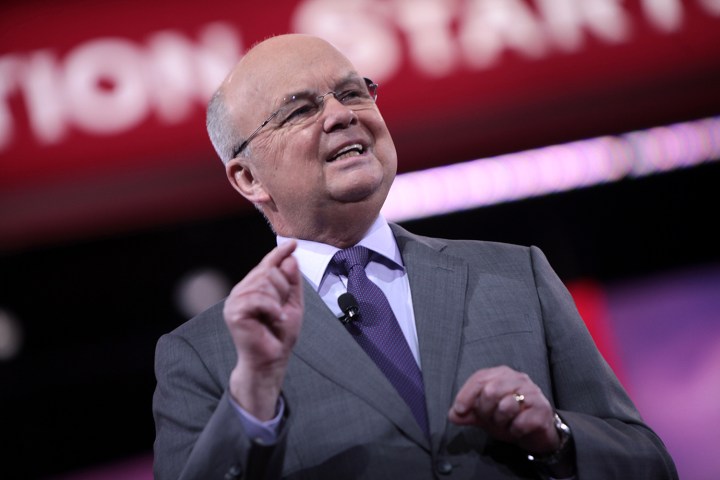
These are the same former high-level administration members that advocated for government eavesdropping programs, and the use of wiretapping and surveillance techniques, in the aftermath of 9/11, according to the New York Times. To name a few: Michael Hayden, former director of the NSA; Michael Chertoff, former secretary of Homeland Security; Mike McConnell, former director of national intelligence; David Petraeus, former director of the CIA; R. James Woolsey, also a former CIA director; and Richard Clarke, a former White House counter-terrorism official.
Despite advocating while in office to utilize increased surveillance tactics, these former officials have now come out in support of unbreakable end-to-end encryption, which is undoubtedly a boon for the Cupertino company in its battle against the U.S. government. Apple has even used their comments in its legal briefs as supporting arguments.
And as it turns out, those comments and the positional switch seem to have struck a nerve.
U.S. law enforcement officials have suggested that money is a motivating factor for these former executives, since most of them currently have business ties with the technology sector. For example, Chertoff and Hayden run a corporate consulting firm that works with tech companies including Apple. The firm has called those ties “irrelevant.”
Stewart Baker, a former Homeland Security official, tells the New York Times that it is frustrating to see old colleagues reiterate Apple’s claims of threats to its customers’ privacy. And Tim Shorrock, a foreign policy commentator, says “they’ve followed the money and adopted pro-privacy positions that they wouldn’t have dreamed of taking while in government.”
Hayden, former director of the NSA, has said he would have taken on Apple if he was the current head of the NSA. But he says his pro-encryption stance has dated back years, and that it has no “relevance” to his current work at consulting firm Chertoff Group.
And McConnell, former director of national intelligence, says boosting the security of U.S. computer systems against hackers and other nations should be a priority over the FBI’s conquest to unlock iPhones tied in criminal and terrorism investigations.
“I believe ubiquitous encryption is something that the nation is going to have to embrace.”
“I believe ubiquitous encryption is something that the nation is going to have to embrace,” McConnell, senior executive adviser at consulting group Booz Allen Hamilton, told the New York Times. “Apple has been leading the fight to go down that path, Google is right behind, and Microsoft will be there before too long.”
The war erupted after San Bernardino shooter Syed Farook left behind a locked iPhone. With 14 people dead, the FBI looked for a way to access the phone to retrieve its contents, and while Apple provided support initially, the company refused to comply with a court order requiring backdoor access into the device.
Apple didn’t want to create a special tool to provide access, fearing that it could fall into the wrong hands and jeopardize the privacy and security of all its customers. The FBI dropped the case after a third party that it had hired succeeded in unlocking the phone, and a similar result ended an unrelated dispute with Apple over unlocking an iPhone in a New York case.


